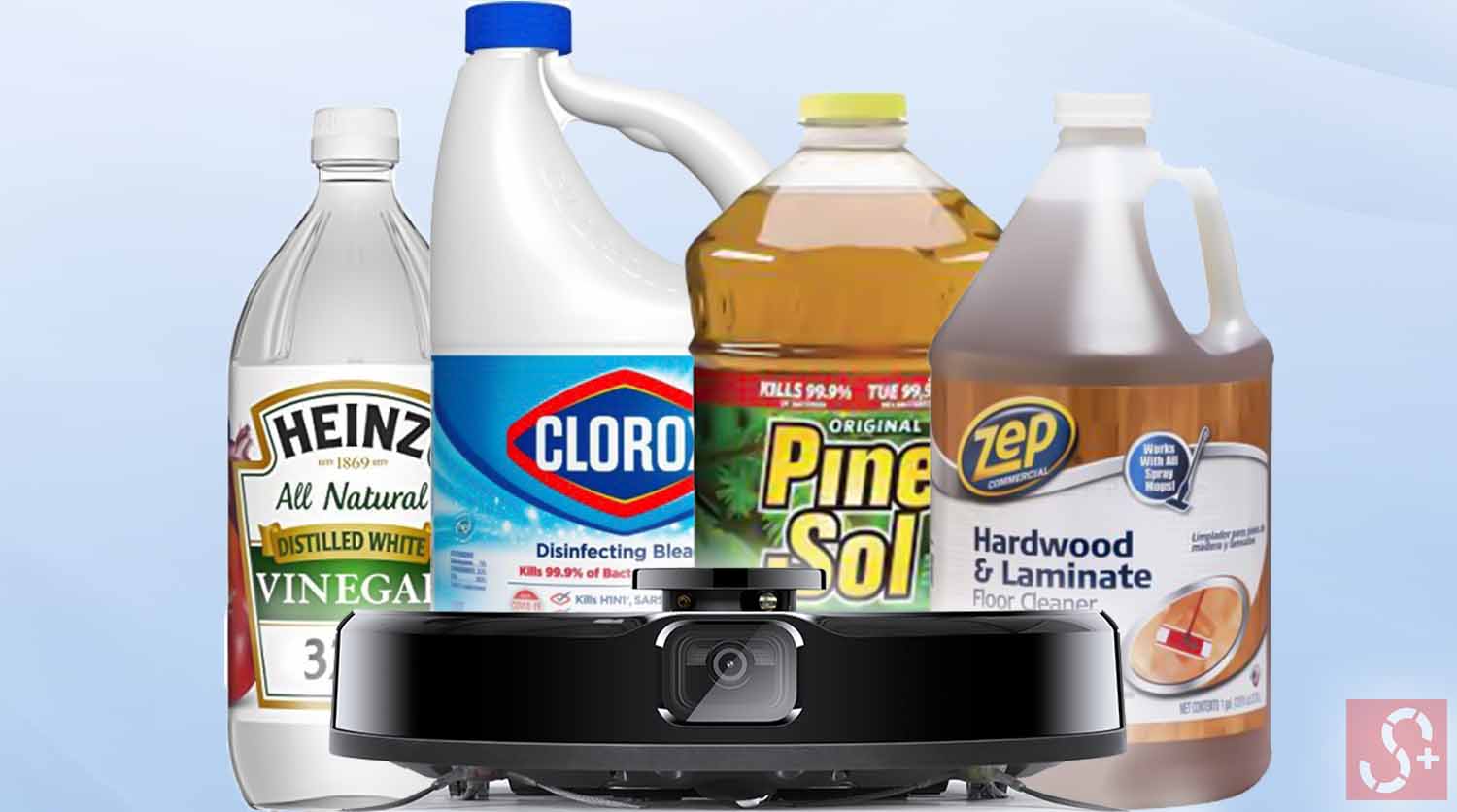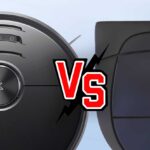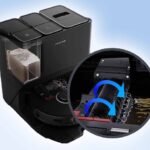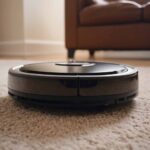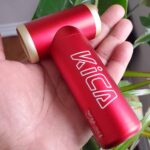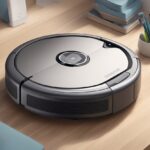Due to damaging past cleaning equipment, I’ve become cautious about using off-brand cleaning products. The first thing I did when I purchased my Roborock S7 MaxV Ultra, I researched the best safe cleaning products I could use with it.
You should always adhere to using a cleaning solution specifically designed for your brand of robot mop. Standard cleaning solutions can be too harsh to use in a robot mop and can cause damage and potentially void your warranty.
Check your mop’s manual or contact the manufacturer to find the best cleaning solution for your model. Alternatively, plain water in a robot mop works well if you don’t need to disinfect your floors. Keep reading to learn more!
What Cleaning Solution Can You Use With Robot Mops?
Below are some brands and the cleaning solutions they recommend using.
| Robot Vacuum Brands | Recommended Cleaning Solutions |
| Roborock | Official Roborock Multi-Surface Floor Cleaner (Amazon) |
| Ecovacs | Deebot Cleaning Solution (Amazon) |
| iRobot | Bona Hardwood Floor Cleaner, Bona Hard Surface Floor Cleaners (Amazon) |
| Bissell SpinWave | BISSELL MultiSurface Floor Cleaning Formula (Amazon) |
Generally, most robot vacuum manufacturers don’t recommend using anything other than their brand’s cleaning solution or water.
The reason is that a non-branded cleaning solution may not consider that it will be used with a robot mop. So their solutions can create corrosion or clogging issues in the robot vacuums over time.
If you use non-branded cleaning solutions, you could also risk voiding the device’s warranty.
Here’s why it might be time to upgrade your robot vacuum or mop:
Robot vacuums have gone through another technological advancement. The latest robot vacuums in the market will do more than vacuum. They can now mop, empty themselves, and even clean their own mopping pad. It has been a game-changer in my household!
Time is the most valuable resource and the one thing you cannot buy. Every second that goes by will never be seen again! The more autonomous robot vacuums are, the more time you can spend doing the things you love.
Given that robot vacuums are such an expensive product, it wouldn’t be a great idea to take the risk and damage them by using a non-branded cleaning solution.
You can also find some homemade solutions online and try them. But the thing is, even homemade solutions may cause damage to your mop.
Eventually, your high-priced robot mop’s rubber and plastic components may degrade and fail prematurely.
There is a reason the manufacturer urges you not to add any kind of cleaner other than the ones specifically made for their brand’s product or plain water.
Suggested Reading: Are Robot Vacuums Worth The Money?
3 Common Home Cleaning Products you’re Probably Tempted to use
Can You Use Bleach In A Robot Mop?
Bleach is a powerful chemical disinfectant that can effectively kill germs; however, it is unsuitable for robot mops.
Bleach is a corrosive substance that can cause damage to the delicate electronic components of robot mops, leading to a shorter lifespan.
Additionally, bleach is a caustic substance and can cause staining on surfaces if not used carefully, making it unsuitable for robot mops.
So, it is best to use cleaning solutions specifically designed for robot mops instead of bleach.
In a recent article that can be read here, I talk about how the corrosive nature of bleach can even destroy a simple plastic spray bottle.
Can You Use Pine Sol In A Robot Mop?
Pine Sol is not recommended for use with a robot mop because it can corrode the inner workings of the robot mop.
It is a strong cleaner and could potentially damage the robot mop or cause it to malfunction. It can also leave a sticky residue that can interfere with the robot’s sensors and cause them to malfunction.
Can You Use Vinegar In Robot Mop?
There is acidity in vinegar. So the robot vacuum’s pump and the tank will wear down over time by its usage. Likewise, using vinegar in devices with rubber gaskets will destroy the gaskets.
Also, gradually, vinegar will chip away at the glue that secures the treads to the wheels. Considering all of this, using vinegar is also not suggested.
Are Cleaning Solutions Necessary For Mopping Floors?
Cleaning solutions are essential for mopping floors since they help to effectively remove dirt and bacteria.
A cleaning solution helps lift and dissolve the dirt, making it easier to mop up the surface.
Cleaning solutions also help to disinfect the floor, killing any germs that may be present on the surface. This helps to keep the floor clean and hygienic, making it safe for everyone who uses it.
Cleaning solutions combine chemicals such as detergents, disinfectants, and surfactants. Each of these chemicals has a different role in the cleaning process.
Detergents break down dirt and oils; surfactants trap and remove dirt; disinfectants kill germs. All three combined within a cleaning solution effectively clean and disinfect your floors.
When it comes to killing germs, the disinfectant in the cleaning solution is the most essential ingredient.
Disinfectants are typically acids, bases, or oxidizers. Acids break down the cell walls of bacteria, bases disrupt the proteins inside the cell, and oxidizers cause cell death by breaking down the cell wall.
When the cleaning solution is applied to the floor, the disinfectant kills the germs and bacteria on contact. Additionally, cleaning solutions can add a pleasant scent to the room, making it more pleasant and inviting.
Keeping your floors clean and germ-free is an important part of maintaining a healthy home, and cleaning solutions are a great way to do it. But using only water in a robot mop has its own benefits.
The Advantage Of Using A Robot Mop With Water Only
- There are no risks of affecting the warranty of the device.
- Water is safe for the device and provides a decent level of cleaning on most floors.
Most robot mops use water or their unique mix for mopping. Almost all products, from Roborock to Ecovacs, advise against using any additional cleaning solutions.
We understand that specialist cleaning solutions for robot mops might become expensive over time. And so, it’s reasonable to be curious about alternate cleaning options.
But we do not encourage using anything other than simple water. And that’s because there are risks of damaging your robot vacuum over time using homemade or other non-brand-specific cleaning solutions.
What’s the solution? The easiest way to avoid this issue is to disinfect your floors separately once the robot vacuum has finished. This will diminish automation, but it is the only way to solve the issue.
Read More: Best Robot Vacuums That Can Clean In Straight Line


